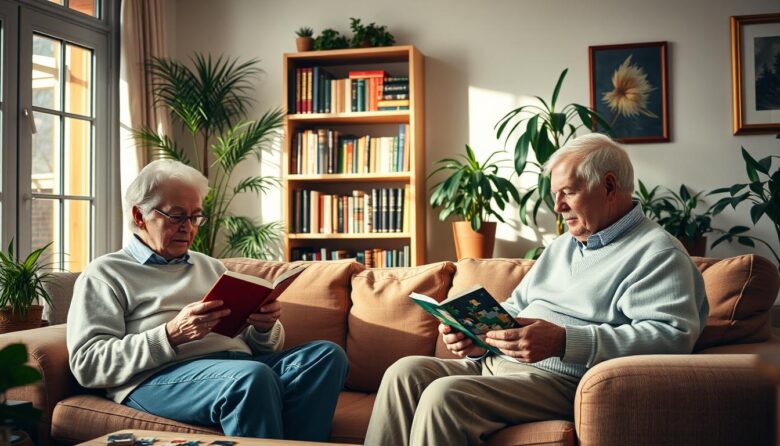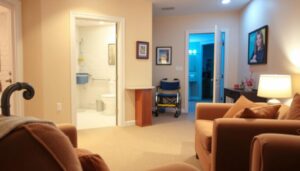Engaging the brain through meaningful tasks can create lasting benefits for older individuals. Studies reveal that regular cognitive challenges strengthen neural pathways, helping preserve reasoning skills and mental sharpness. A decade-long research project found participants who practiced targeted exercises maintained faster cognitive processing years after the study ended.
The secret lies in finding the right balance. Activities should feel rewarding without causing frustration. Puzzles, creative projects, or learning new skills work best when tailored to personal interests and abilities. This approach respects individual preferences while encouraging gradual growth.
Caregivers play a vital role by creating supportive environments. Instead of focusing on results, prioritize the joy of participation. A relaxed atmosphere helps older adults embrace challenges as enriching experiences rather than stressful obligations.
Thoughtfully designed routines act as preventive measures, supporting independence and overall health. When introduced gently, these practices become sustainable habits that enhance daily life. The goal is to nurture curiosity and engagement at a comfortable pace.
Setting the Stage: The Importance of Hobbies and Mental Stimulation in Later Life
Scientific breakthroughs reveal that later life can be a time of neural renewal. Our brain retains remarkable adaptability, even as we age. Groundbreaking research shows purposeful engagement strengthens cognitive reserves, acting as a buffer against decline.
Understanding the link between cognitive health and active engagement
Professor Denise Park’s landmark study demonstrates how complex tasks rewire aging minds. Participants mastering digital photography and quilting showed 30% better memory function compared to control groups. These skill-building exercises activate multiple cognitive health domains simultaneously, from spatial reasoning to creative problem-solving.
The key lies in structured challenges that spark new connections between neurons. When learning pushes boundaries without overwhelming, it triggers neuroplasticity—the brain’s ability to form fresh neural pathways. This biological process remains active throughout life, given the right stimulation.
Enhancing overall well-being through enjoyable pursuits
Long-term studies tracking older adults reveal a 45% reduction in cognitive decline risk for those maintaining stimulating routines. Beyond health metrics, participants report heightened life satisfaction and social connectedness. The secret? Choosing pursuits that blend challenge with personal meaning.
Optimal engagement follows the “Goldilocks principle”—not too simple, not too complex. This balance releases dopamine and serotonin, enhancing motivation naturally. Regular practice strengthens executive function, making daily tasks feel more manageable over time.
Gentle Cognitive Exercises: Puzzles, Board Games, and Conversation
Strategic engagement through familiar formats offers accessible pathways to cognitive vitality. Matching challenges to personal capabilities creates opportunities for growth without pressure. The right mix of structure and flexibility keeps exercises both beneficial and enjoyable.
Brain puzzles and games to boost memory and problem-solving skills
Crossword puzzles strengthen verbal recall by requiring precise word retrieval. Research shows regular solvers experience slower memory decline, with some delaying dementia symptoms by 2.5 years. Jigsaw puzzles activate visual processing and spatial reasoning—key components of problem-solving skills.
Board games provide layered benefits. Bridge challenges players to track complex patterns, while chess sharpens strategic planning. Simpler options like Memory Match adapt well for varying abilities. A 2018 Neurology study found weekly game players maintained sharper memory compared to non-participants.
Interactive conversation as a tool for mental agility
Meaningful discussions engage multiple brain regions simultaneously. Recalling names, interpreting tone, and crafting responses exercise working memory and social cognition. Group settings add dynamic elements that mimic real-world problem-solving scenarios.
Digital platforms like Lumosity offer structured exercises with adjustable difficulty. These tools complement traditional methods, providing measurable progress tracking. The key lies in consistency—short daily sessions often yield better results than occasional marathons.
Engaging Mental Activities for Seniors
Creative pursuits offer powerful tools for maintaining cognitive vitality. These practices combine enjoyment with neurological rewards, creating sustainable habits that support long-term brain health. Research highlights how multisensory engagement strengthens multiple cognitive domains simultaneously.
Exploring brain games and creative challenges
Mastering a musical instrument activates auditory, motor, and memory centers in the brain. Studies show older adults practicing piano for six months develop improved hand-eye coordination and problem-solving skills. Ukulele and harmonica serve as beginner-friendly options with measurable health benefits.
Language learning builds new neural networks through grammatical patterns and vocabulary recall. Apps like Duolingo offer bite-sized lessons that adapt to individual pace. Even 15 minutes daily can enhance concentration and delay age-related challenges in information processing.
Visual arts like watercolor painting engage spatial reasoning and emotional expression. The tactile nature of clay modeling or knitting stimulates procedural memory while producing tangible results. These hands-on exercises boost confidence through visible accomplishments.
Writing practices—from journaling to poetry—organize thoughts and sharpen recall. Digital platforms provide adaptive brain games that track progress in memory and attention span. Combining different methods creates comprehensive stimulation, addressing various aspects of mind function.
Blending Hobbies with Physical Activity for Holistic Health
Movement becomes medicine when paired with purpose. Combining physical motion with cognitive engagement creates a powerful synergy for aging adults. Research shows activities requiring coordination and rhythm activate neural networks while strengthening the body.
Low-impact exercises like Tai Chi and dance for enhanced coordination
Tai Chi’s flowing movements demand focused attention, linking breath to motion. This ancient practice improves balance while stimulating brain regions responsible for spatial awareness. Studies indicate regular participants experience 35% fewer falls and sharper decision-making skills.
Dance programs tailored for seniors merge cardiovascular exercise with pattern recognition. Learning choreography challenges memory and timing, with CDC data showing 27% lower cognitive decline rates among weekly dancers. Partner dances add social interaction, doubling health benefits through emotional connection.
Gardening offers multisensory engagement—planning layouts exercises problem-solving, while digging and planting strengthen muscles. Exposure to sunlight boosts vitamin D levels, supporting both bone health and mood regulation. Adaptive tools make this activity accessible for varying mobility levels.
Stepping into a Future of Vitality and Connection
Tailored approaches to cognitive engagement create lasting health benefits while strengthening family bonds. For those experiencing dementia, focusing on process over results fosters calm and preserves dignity. Simple tasks like sorting objects or discussing familiar topics maintain function while reducing anxiety.
Group settings in home care environments nurture social connections through shared goals. Volunteering opportunities adapted to ability levels provide purpose and community ties. These interactions stimulate cognitive health by requiring listening, processing information, and creative problem-solving.
Families can build sustainable routines by aligning interests with manageable challenges. A grandmother teaching knitting patterns or a grandfather sharing gardening tips reinforces skills while creating meaningful moments. Professional guidance helps adapt these practices as needs evolve, ensuring continued care without overwhelm.
Ultimately, personalized engagement becomes a bridge to joy and connection. By prioritizing participation over perfection, loved ones maintain their sense of self while navigating life’s changes. This compassionate approach transforms daily care into opportunities for growth and mutual understanding.



